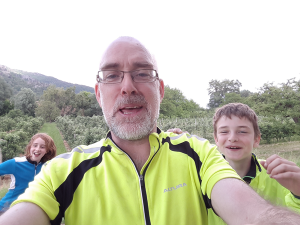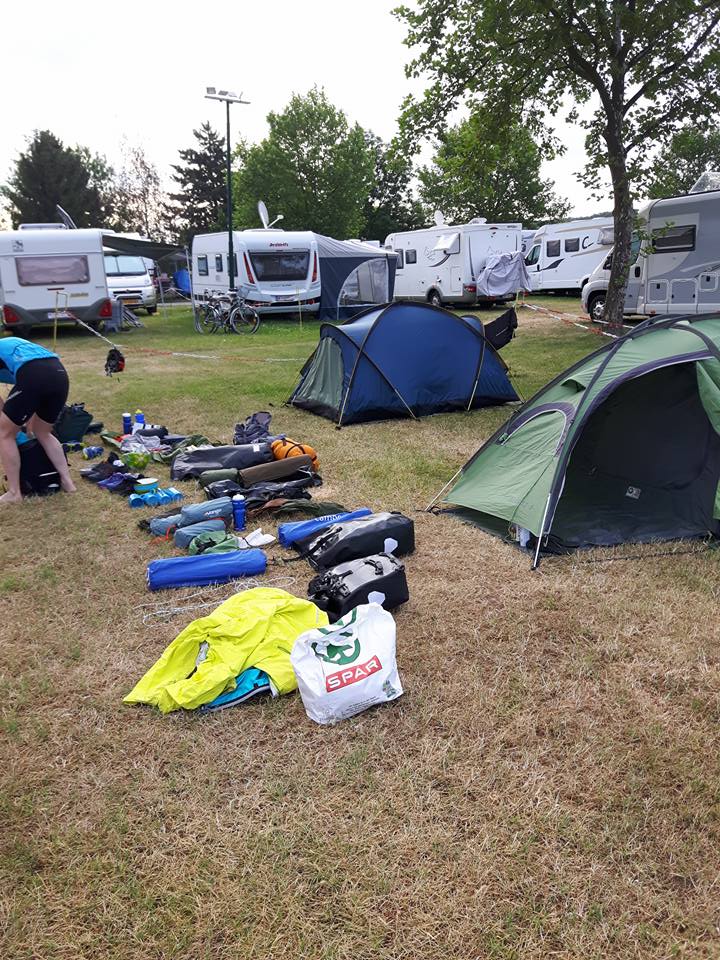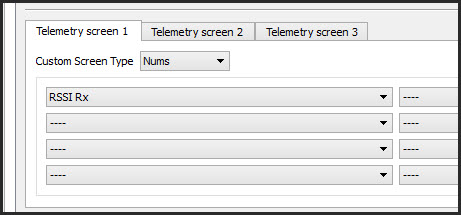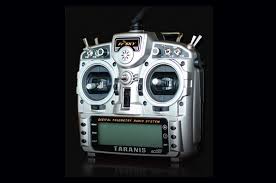
I was lucky enough to attend the Cycle Touring Festival last weekend and heard some great inspirational talks by experienced cycle travellers. Even more inspirational was getting the chance to chat to so many other cycle travellers. Some people had done many thousands of miles while many, like myself am sort of just getting into cycle touring.
One thing I did take away was how helpful it is for people to share their experiences. So I have put this article together on my first solo 600 km cycle tour in September 2023 ( finished the week before the festival )
I am mostly only a beginner so these are not expert views at all, but hopefully other beginners can relate. The route is a fantastic route that is very straight forward and takes in 3 countries. You could easily modify it to take in Southern Ireland and Wales as 4th and 5th regions by getting a ferry from Dublin to Holyhead for the return leg.
This was my first solo bike touring trip. As a family we have done various kid friendly multi-day camping trips like our Danube trip and the Way of the Roses is the UK. I have always really loved the family trips but the kids are older now and I wanted to try cycle touring as a hobby. It would be great to do these trips with company but I wanted to see how I found it and what my “preferred pace” was. The pace is not a target, the journey is more important, but having a similar expectation of pace to travelling companions is probably useful. The answer is 75 – 100 km per day at @16km /h and generally camping :-).
I did the trip in 7 cycle days although I did work in Ireland for 2 weeks before cycling home via Liverpool over a weekend.

You can download the whole gpx file here and there are map links for each day below. Note that these are the actual journey and include occasionally getting lost and other minor diversions, I wouldn’t follow them exactly 🙂 => https://seancull.co.uk/wp-content/uploads/2023/10/Ireland_Sep_2023_combined_track.gpx
Cycling Day 1 – Preston – Kendal
https://cycle.travel/map/journey/500491
Day 1 was a fantastic first day. I was nervous about the first day as it was the only day where I had to reach a fixed destination and I wasn’t sure what I could achieve. It was fine.
The day went really well and was almost exclusively on either tow paths or quiet roads. The tow paths were pretty but the surfaces were sometimes a bit rough. I was fine with my 700c 33mm touring tyres but I wouldn’t want to have been on road tyres. There were three sets of steps, each had a channel to roll the bike but it was a little awkward with panniers.
The weather for the whole trip was exceptional, almost too warm. I drank 6 litres of fluids on this day. I had 3.5 litres on the bike when full but getting new water was straight forward. I used these Electrolytes in my water but there are many similar brands.
I met another British cyclist along the way who had cycled from the Baltic via Lands End. I stayed with a friend near Kendal in the evening but there were camping options too.






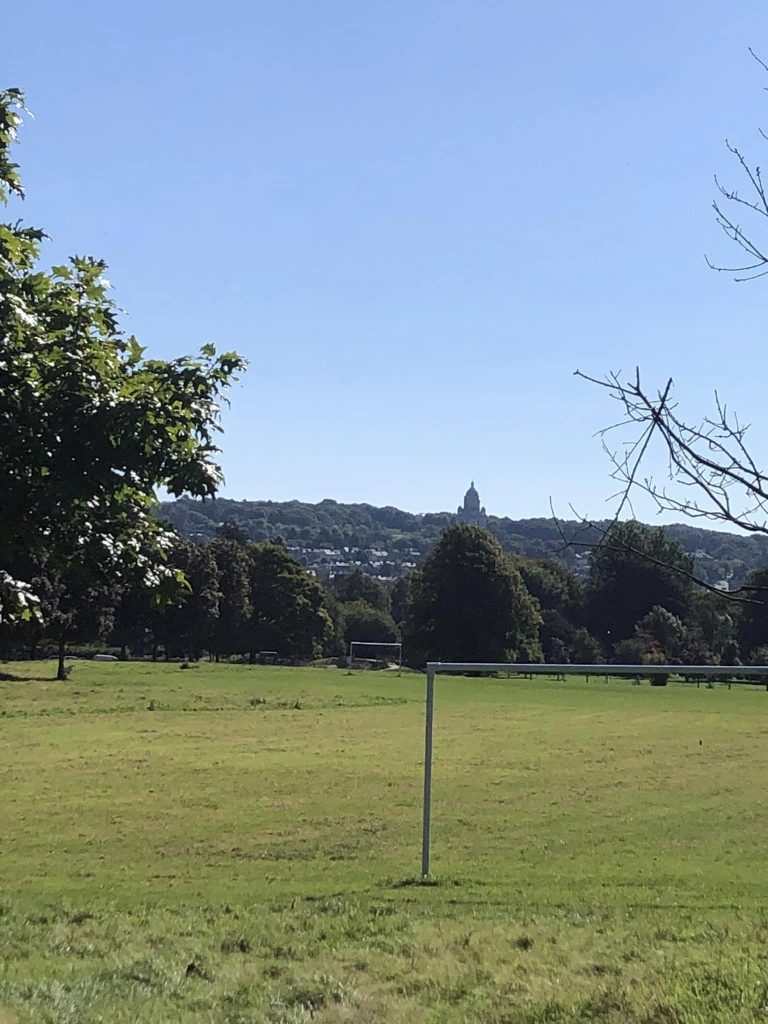

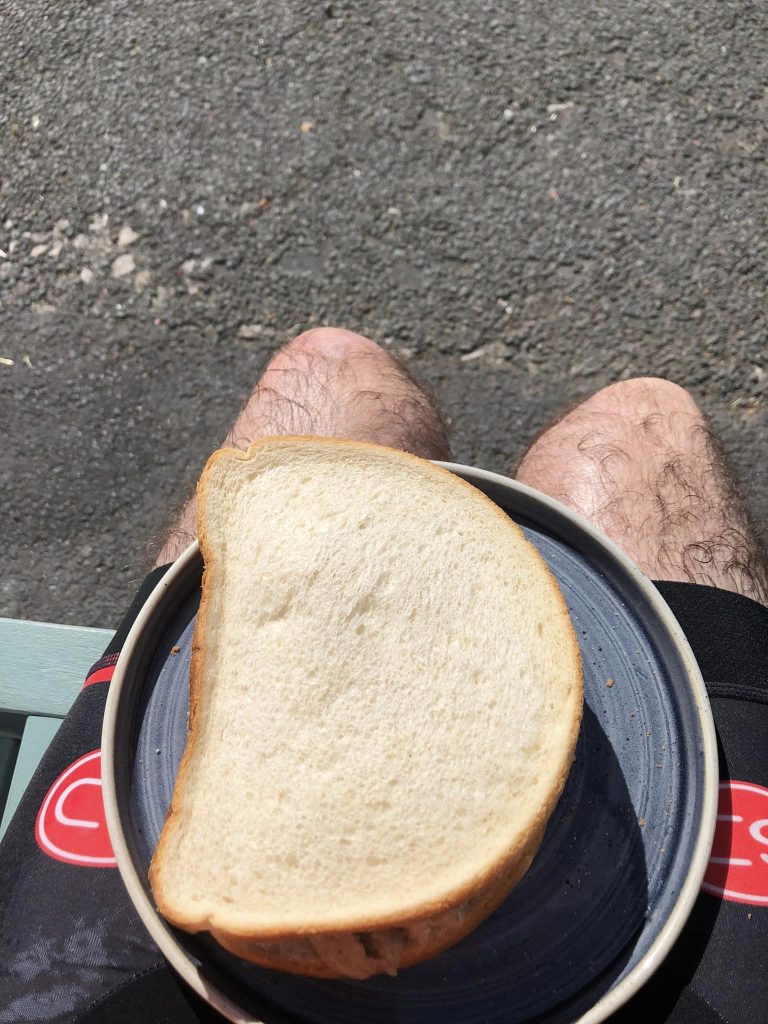











Cycling Day 2 – Kendal to Near Carlisle
Bike map | Cycle route planner | cycle.travel
Day 2 was another gorgeous day. Again I was a bit nervous as this was my first hilly day with 93km and 1100 meters of ascent. I had three different campsite options and some potential wild camping spots if I needed them so I just took it as it came. I had chosen the Trek 520 because of the low gears ( 26/36 ) and they worked brilliantly.

The days most memorable thing was bimbling through the beautiful countryside, mostly freewheeling.
The new Garmin Edge 1030 was ace. The hill feature where it displays the hill profile and counts you down is very helpful. It was also great to be able to see the map on a bigger screen than the old 5 series one.
Camped at “Camping Cardewelles” just south of Carlisle

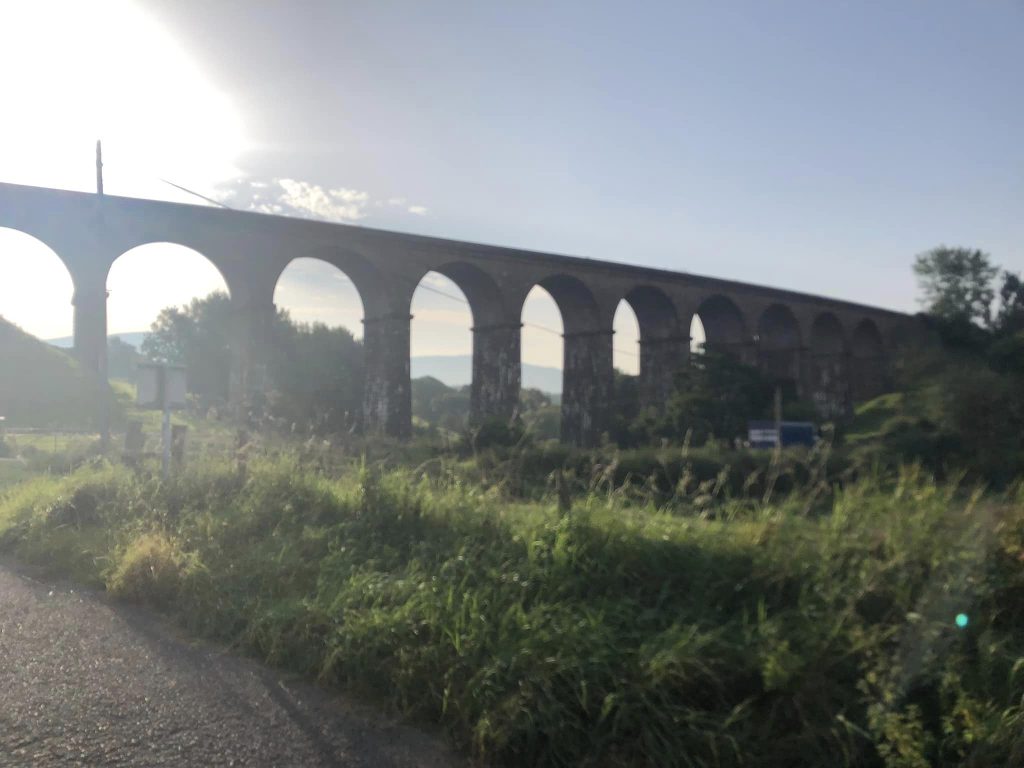






Other campsites I looked at were
Cycling Day 3 – Carlisle to Dumfries
Bike map | Cycle route planner | cycle.travel ( note has a detour to see swans )
Day 3 of cycling to Mum’s. 87km and supposedly 400m of climbing ( felt flat ). Very hot although cloudy. Felt long

Solway coast was nice. Chatted to some lovely locals along the way. Most interesting was an ex BSB motorcycle racing mechanic who retired, quit motorcycling and took up cycling. Lovely character.
Interesting WW2 explosives factory museum ( Devils Porridge ) that made me think of Buckshaw. Will visit properly next time.
Overall Scotland is noticeably more chilled. Asked about wild camping by a cafe out of curiosity and the response was “but of course – it is Scotland after all”. Traffic very courteous, actually England was good too, maybe it’s the panniers and the drivers thinking “Poor Bloke”
No camping tonight though as a family friend who is on holiday has very generously lent me her house 🙂


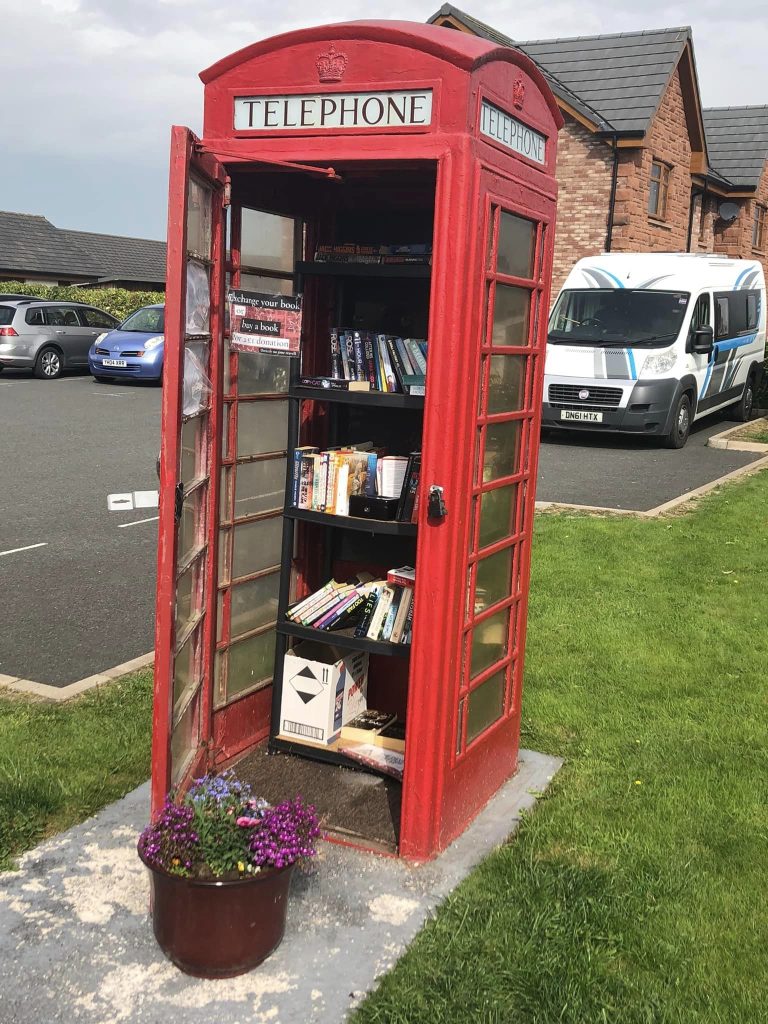

I also looked at camping at Caerlaverlock Community Camping just south of Dumfries and there was very friendly wild camping next to the carpark in Glencaple ( would have been my preference )
Cycling Day 4 – Dumfries to Belfast
Bike map | Cycle route planner | cycle.travel
132 km and 1000m day. Wasn’t expecting that ![]()

Really nice day. The Galloway Hills are really beautiful and the cycle.travel app picked a gorgeously quite route. I saw 3 vehicles in one 3 hour section.
Started in Dumfries planning on Newton Stewart but then extended onwards looking to wild camp. There were loads of lovely wild camping spots up on the fells but everything just kept coming and I realised I could make the ferry a day early.
Probably got a bit carried away with the last 30km but enjoyed it. I am sure the uncooked baked beans, tuna, milk and pasta bought for tonight’s meal helped me go faster down the hills.
The route turned into a stone track towards the end. The bike was fine but a proper road bike would have struggled a lot.
Got the ferry via the reserve list. Into Belfast at 22.30 with another 10km to go but my front light failed within 50m. It was fully charged ![]() the trip through Belfast was a bit stressful and I had to use pavements and stop quite a bit to avoid confusing traffic. Got a bit lost as a result too.
the trip through Belfast was a bit stressful and I had to use pavements and stop quite a bit to avoid confusing traffic. Got a bit lost as a result too.
Got to my sisters and chilled. Rest day tomorrow.
Really chuffed with today. Think I definitely prefer moderate hills to flat.


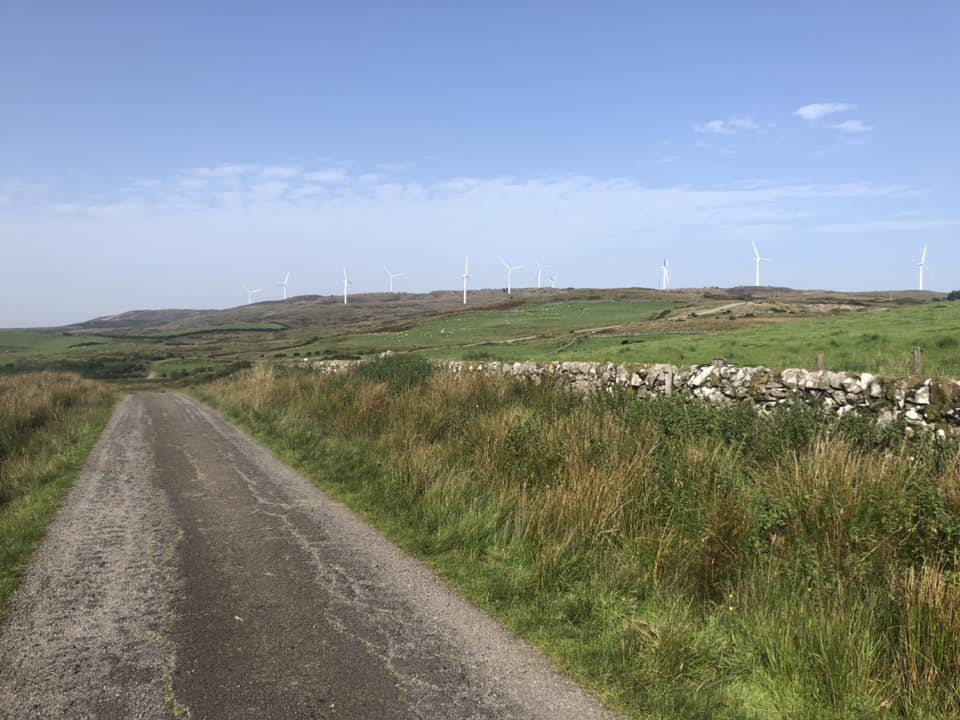

For camping I had looked at
Caravan Site | Dumfries and Galloway | Machermore Far (machermorefarm.co.uk)
Balloch O’ Dee Campsite (ballochodee.com)
Welcome – Aird Donald Caravan Park, Stranraer Family run for over 60 years. (aird-donald.co.uk)
There was loads of wild camping opportunities, I would have gone for the Windfarm to the east of New Luce
Cycling Day 5 – Belfast to Warrenpoint ( Mums )
Bike map | Cycle route planner | cycle.travel
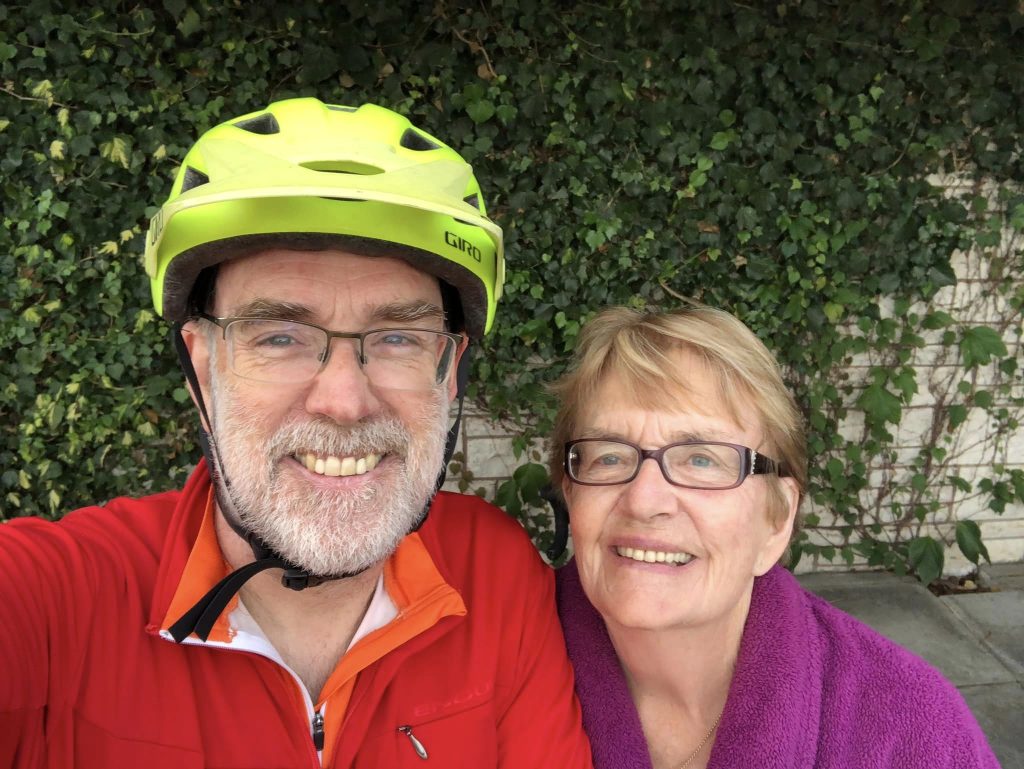
Day 6 of cycle trip to mum’s – arrived.
Day 5 was lovely rest day at my sisters and day 6 was 78km from Belfast to mums. 1000m of tough climbs, I didn’t expect that.
I took the tow path from Belfast to Lisburn direction. It was by far the best tow path of the trip, brilliantly surfaced the whole way.

After Lisburn it was across country through the drumlin hills

It was the toughest climbing of the trip. The drumlins are quite steep and the minor roads seem to just go right up them. I am guessing but I think the road structure is influenced more by the boundaries of the small farms than the best route for traffic.
The route planner estimated 600m of climbing but it was 980. It also felt like the gradient data was a bit vague as the Garmin frequently thought climbs were shallower than they felt.
The image below is not great quality but this Irish Elk sculpture is at the entrance to my Irish home town and I know the artist from the kids climbing club in Preston where I live in England – small world.

Cycling Day 6 -Back to Belfast for the Ferry
Bike map | Cycle route planner | cycle.travel
I worked at mums for a couple of weeks and had a vague plan to cycle to Dublin and then take a ferry to Liverpool. The problem was that P&O do not take bicycles – don’t start me. I could have taken a bicycle on Stena to Holyhead but i needed to get back in a weekend.
So I cycled back to Belfast and took the overnight ferry to Liverpool. The weather had changed quite a bit over the two weeks when I was working in Ireland and I was glad I had still taken my autumn gear despite the unseasonably warm weather on the way out.
I took a similar route to the way down but went via Hillsborough to get a coffee to eat with the substantial sandwiches my mum had made 🙂






I got caught in heavy rain for the last 10km to the ferry after dark ( I had stopped to see some friends on the way and the ferry was at 10pm ). I was pleased I had good lights.
I did get bit concerned as I followed the suggested cycle route through the secure area of the Belfast docks. I had this image of the gate being locked ta the far end and missing my ferry having had to retrace 3 miles of route. The unmanned security gate was closed but there was an official bicycle sized hole in the security fence 🙂

Loading the bike onto the ferry was not the smoothest experience. I was left to load it onto a bicycle trailer that already had two touring bikes on it. The whole arrangement was a bit clumsy and not particularly safe in terms of the potential for customers to hurt themselves. No staff helped. It was then a bus ride to the ferry.

Once on the ferry I discovered that I was already a Gold Member with access to a free lounge with lots of food. There were no cabins left but the staff were very helpful and I bedded down for the night in a quiet corner and slept in my camping gear. I didn’t sleep great so next time I might book earlier and splash out on a cabin.
Cycling Day 7 – Liverpool to Home
Bike map | Cycle route planner | cycle.travel
The ferry got into Liverpool at about 06:30. By the time I got cycling it was about 07:30.
I was on a bit of a mission as my son was leaving for university that afternoon so I pushed quite hard to get home quickly. That evening my legs ached for the first time in the trip.
The ferry comes into Birkenhead which is actually south of the river Mersey from Liverpool so, as far as I understand, you need to take a train or a tunnel.
Cycling through the Queensway tunnel is only allowed at night and on Sundays, I was fortunate that this was a Sunday. It was quite an experience as the tunnel is 3.2km and goes 50m below the river bed. ( not my video but you get the idea ). The drivers were mostly excellent ( all were at least OK ) but it is quite a slog back up out of the tunnel and then up the hill that the route follows – much hillier than I was expecting.
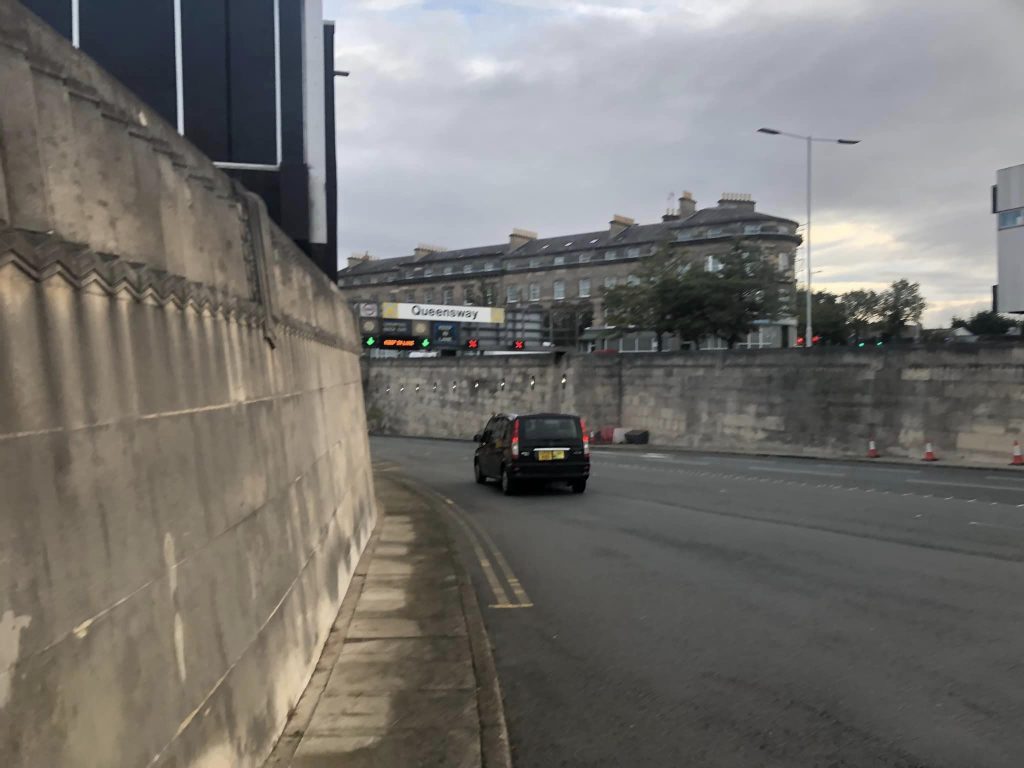
The rain held off and I was home by late morning.
Thoughts on Route Planning
The most important bit for my route planning was the cycle.travel web site. I was a bit sceptical at first because it added 10 – 20 % to my routes over Komoot but the routes that it suggested turned out to be simply wonderful. I also liked the way the routes were displayed on the screen in the multi-day format with regular distance markers.
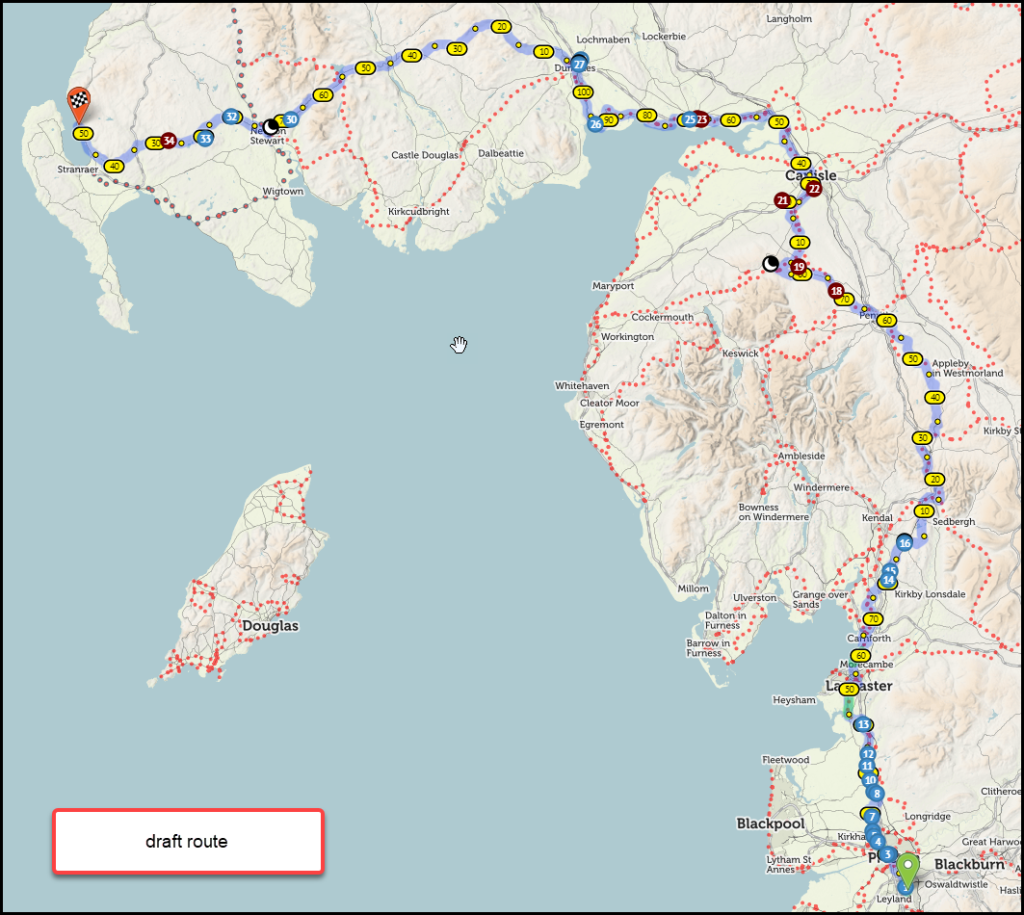
There is a cycle.travel iOS app but the functionality is more limited than the web site. I found that on both my computer and my iPhone I could very quickly transfer the route from cycle.travel to Komoot where there were some better tools for checking the surfaces and adjusting the route before I then dropped it onto my Garmin.
I sometimes also used Google Maps to look for campsites and shops.
Cycle.Travel has been developed mostly by Richard Fairhurst from the UK. I work in IT development and I am quite honestly in awe at what he has achieved. This YouTube video from the 2022 virtual Cycle Touring Festival is well worth a watch to get a feel for how the system works.
Thoughts on Kit
I think I got the kit list about right. This is the list with some more thoughts.
The bike ( Trek 520 ) was brilliant, especially the low gears ( 26/36) . In hindsight the frame ( 54 ) may be a bit small for me but it was right by leg length. I also tend to get on by “stepping through” when I have panniers so a larger frame might have problems too. I bought this handlebar raiser just before I started and it made my riding position much better.
The Brooks B17 carved saddle was ace. I noticed it but it was never painful.
The handlebar bell was really useful on the greenways and tow paths.
I used my phone to take pictures ( should have cleaned the lens more ). I kept it in the day bag on airplane mode and it lasted well. I probably used it 2/3 times per day for navigation but most of the time I used the Garmin.
The Ortliweb panniers worked well but I was glad that I replaced the fiddly shoulder straps with shock cord before I left. The front panniers are smaller than the back ones but I purposefully packed the stove and heaver items up front. I had the tent on the rear rack and a day bag on the front rack for food, tools, sun cream etc.
The three water bottle holders were a god send in the hot weather. I had originally only expected to use the 3rd one on the last leg to a wild camp but I used it during most days.
The Jetboil stove worked pretty well. I had wondered if I had overdone it also taking a camping pot but I did find that the integral Jetboil pot was so thin that it was easy to burn the pasta/tuna/beans meal that was my staple. I was glad I had a more substantial pot. It also gave more flexibility. I had purchased the Jetboil pan support. Next time I would bring a small gas lighter as I managed to get the automatic Jetboil lighter wet and had to borrow one from a nearby caravan.
For sleeping I had a summer down sleeping bag with a pertex liner and a Gore-Tex bivvy bag. The system took up a fair bit of room but I wanted to try a layering approach to see how that worked. I would certainly consider doing the same again. I used the same system at the Cycle Touring Festival a few weeks later in October and it was only just warm enough.
Cycle stands are a contentious subject but I would not be without one. I was lucky enough to have a cycle frame that had an integral mounting plate.
Thoughts on costs
I was curious about costs because I would love to do longer trips in the future. Because I was on my own, and on holiday, I did eat in cafes several times a day. The key costs were :
Ferry – @£50 per trip
Camping ( where needed ) – @£15 per night
Cafe stop – @£10 – £15 per stop, 2 times per day
Food to eat / cook – £10 – £15
So @£50 per day + £100 ferry. It could be done cheaper but these were my costs for this trip.
Summary
The trip was a fantastic experience that I would heartily recommend. It took in three countries, multiple ferries and all in 7 days cycling. If you skipped the southern leg in Northern Ireland it could be 5 days cycling or if you went home via Dublin Holyhead it could may be 9 – 10 days cycling with the Republic of Ireland thrown in. Going into Ireland via Larne rather than Belfast could be interesting, I have not looked at the feasibility of this.
It was a great introduction to cycle touring and I now have a much better idea of what I could achieve if I was touring with others. The headspace was great but company would be good too.
Taking a tent was a really positive thing. It meant that I was able to undertake each day knowing that I would always have somewhere to stop. The English portion might have required some wild camping ingenuity but the Scottish leg would have been much more straight forward.



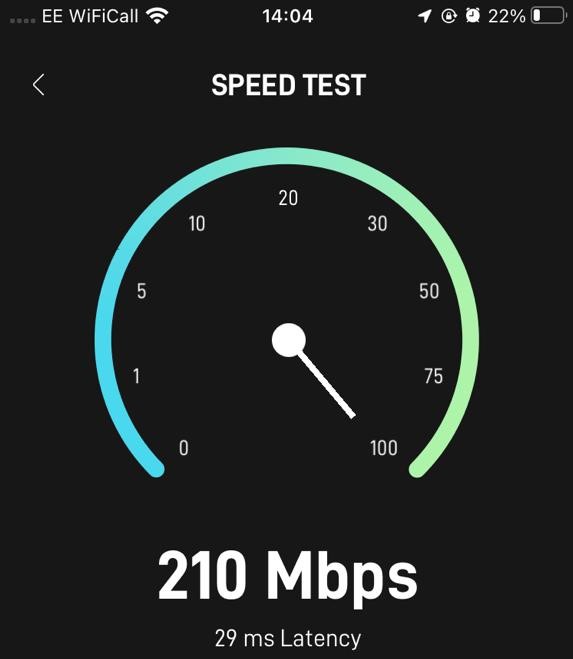
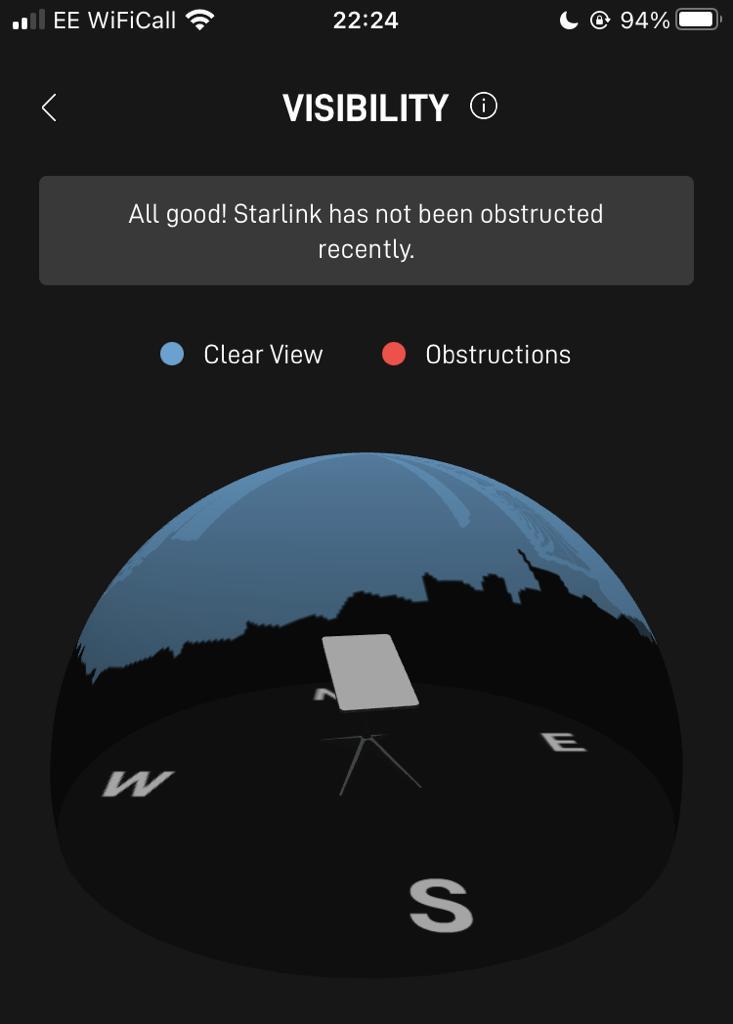
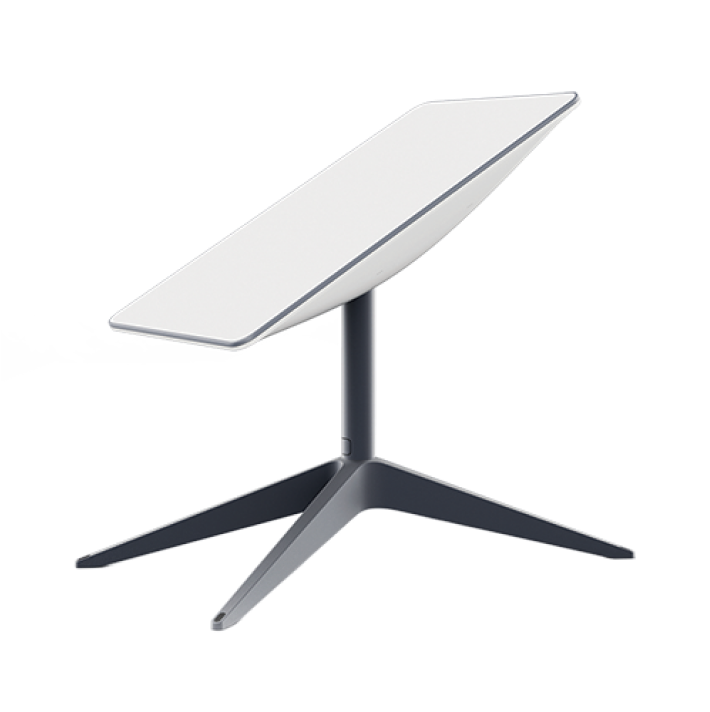
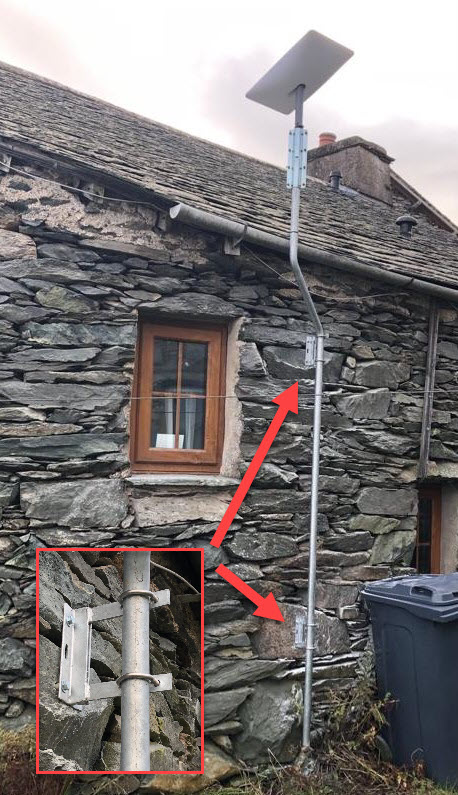
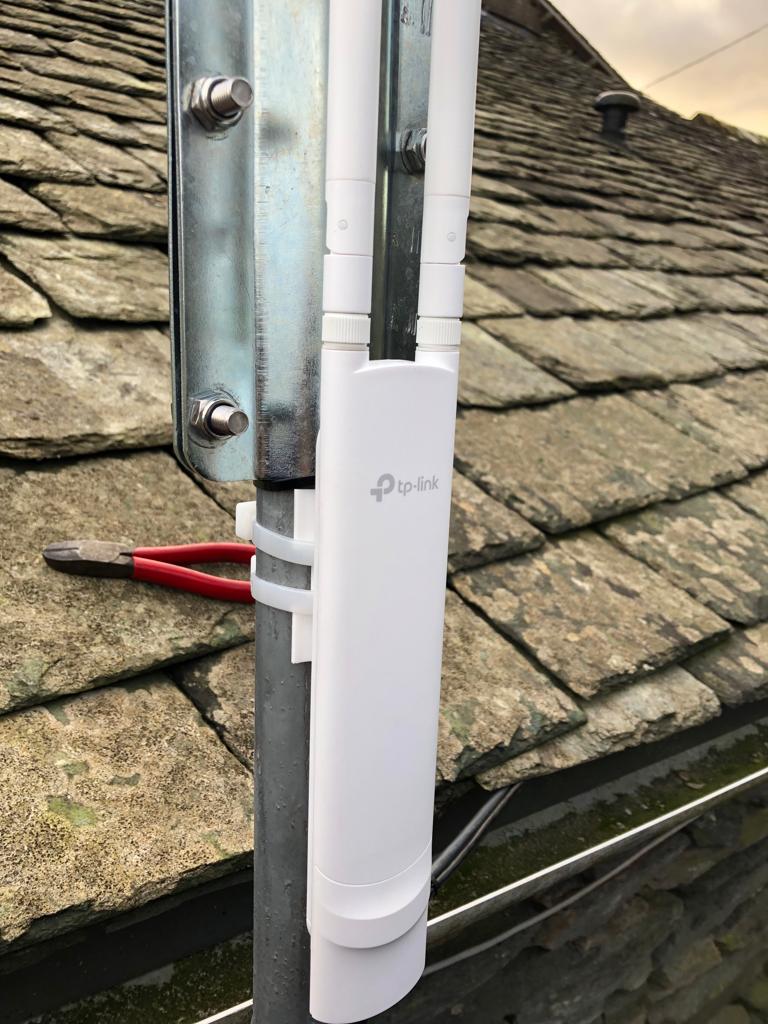
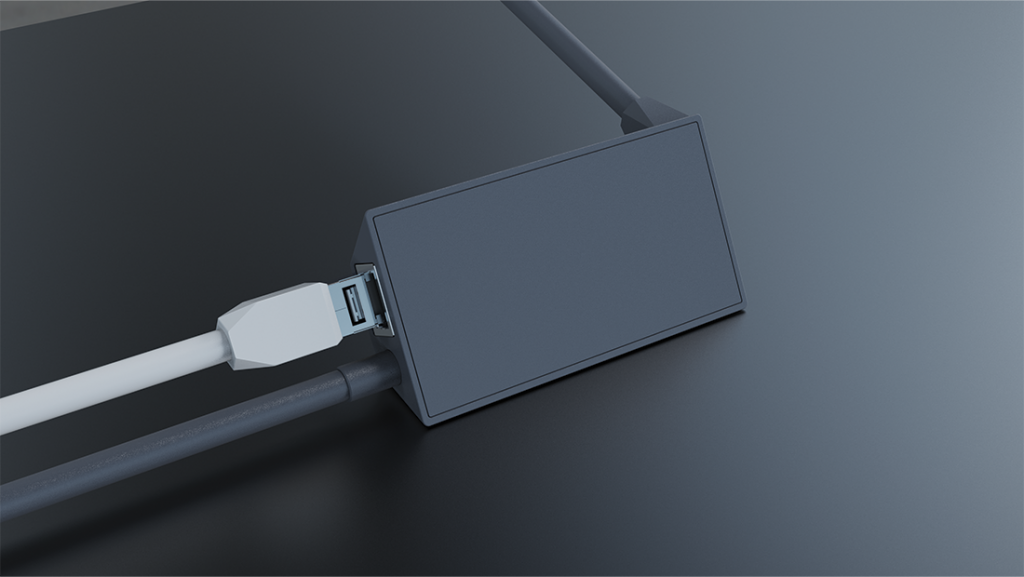



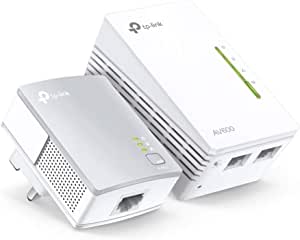






 From the ferry we cycled @30km into Amsterdam. There is a well marked cycle route although we may have gotten lost for a while 🙂
From the ferry we cycled @30km into Amsterdam. There is a well marked cycle route although we may have gotten lost for a while 🙂
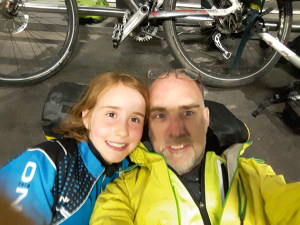

 He forgot ….
He forgot ….


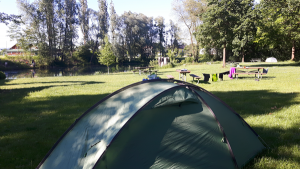



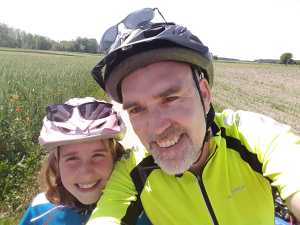








 The kids were still in good form and we’re flying along. John’s wheelies and
The kids were still in good form and we’re flying along. John’s wheelies and 

